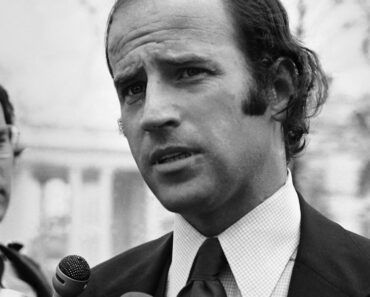This post was originally published on this site
https://fortune.com/img-assets/wp-content/uploads/2024/04/GettyImages-520752315-1-e1712693189609.jpg?w=2048
Not unlike the famed tree of Shel Silverstein’s divisive children’s book, teachers don’t have much left to give. Oppertating in a infamously demanding and poorly-paid sector, many educators have reached a breaking point over the last couple of years as they navigate an increasingly broadening workload.
It all means that current teachers have become like a foreboding side character in a horror movie, telling the bushy-tailed bright eyed graduates to run away from the crumbling house (or education system) while they can. More than half (52%) of educators tell Pew Research Center that “they would not advise a young person starting out today to become a teacher,” according to a survey of more than 2,500 educators conducted in the fall of 2023.
“I feel like the profession of teaching is no longer a profession; it’s something people do after college for a couple of years to figure out what they really want to do,” Lisa Wolfe, a former educator who quit due to the way schools are run, told Fortune in December. As new teachers are met with poor conditions and wages, they quit, “so we lose all that talent, and our students lose,” she adds.
Indeed, most teachers (77%) report that their job is frequently stressful and (68%) overwhelming. In actuality, it’s the tenured teachers that have been pushed to the edge, as Pew finds that newer teachers are more likely to report that their work is enjoyable.
Part of what’s likely happening is that teachers who have been around for some time realize that things used to be better. Many educators report that the nation’s infrastructure is rapidly slipping, as 82% report that the state of public K-12 “has gotten worse in the past five years.” Of those that report worsening conditions, educators report that the major stressors to their job are the political climate (60%), rippling influences of the pandemic (57%), and a lack of funding (46%).
Indeed, the school room has become a playground for politicians. And the encroachment is pushing teachers out, as figures like Ron DeSantis and the Moms for Liberty mobilize and wage culture wars against the education system. As it stands, educators are grappling with rising school violence and state laws that push to censor topics including critical race theory and LGBTQ+ rights. Pew finds more trust the Democratic Party to deal with the crisis plaguing the system, which may not be a surprise, considering the party’s close ties to the teachers’ union. Still, a good portion don’t believe either party can do the job, per Pew.
Around eight in 10 teachers report to Pew that the pandemic had a negative effect and “lasting impact” on the way students act. Citing a lack of parental discipline as a potential reason for acting out, most educators report they’ve experienced verbal abuse from their class. And the proportion of students who went to schools with high or extreme levels of chronic absenteeism spiked from 26% in the 2017-2018 school year to 66% in 2021-22 school year, according to an analysis from Everyone Graduates Center at Johns Hopkins University and Attendance Works.
Part of the solution to this absenteeism issue is “relationship building,” Hedy N. Chang, executive director at Attendance Works, told Fortune. Though Chang admits that this can’t be done in isolation as “relationship building also requires investing in the adults working in schools.”
In a workforce marked by brewing dissolution and malaise, educators are especially distressed. While 51% of general U.S. workers report being very or extremely satisfied with their jobs, that number shifts to only 33% for teachers. Difficulty retaining leads to greater workloads for current teachers, as 70% of educators report that their school is understaffed.
“We’re failing our students miserably,” Wolfe told Fortune, adding that she would work hours past midnight to grade or do paperwork. Her burnout speaks to the stress that pervades the industry, as 84% of educators report that there’s not enough time in their work day to do all they’re expected of. Still, even with a hefty workload, teachers are struggling to make ends meet. Only 15% of educators report being extremely or very satisfied with their pay.
It all means good teachers are throwing in the towel and warning others to not follow in their steps. After teaching for 19 years, Wolfe left her dream job last year. “I’ve done enough,” she said. “I don’t have anything left.” She’s not alone, as 29% of teachers that reported not planning on quitting or retiring within the year told Pew they’re looking for a new job. A good portion are looking for a job outside of the sector entirely.
The kids are not alright, really, fueling the fire for teachers. And while overworked, educators don’t have the ability to properly do their job and provide adequate care or education for said children.The main crisis facing kids according to their teachers include: poverty, chronic absenteeism, and anxiety and depression.
As it stands, educators are feeling empty. “Education only works off of free labor from teachers. If teachers would stop working for free, it would collapse,” Wolfe said.
Are you a teacher feeling burned out? Would you advise a young person not to go into your line of work? Reach out to chloe.berger@fortune.com.



